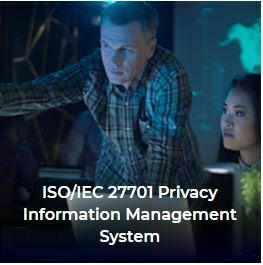Data privacy is a critical concern for individuals and organizations alike. With the increasing amount of personal and sensitive information being collected and stored by businesses, it is important to ensure that this data is protected and handled responsibly.
Data privacy training is essential for organizations that collect, use, and store personal data. It helps employees understand their responsibilities when it comes to handling this type of information and how to comply with relevant laws and regulations.
There are several benefits to such a training for organizations:
Improved compliance: By providing employees with the knowledge and skills they need to handle personal data responsibly, organizations can ensure compliance with data privacy laws and regulations.
Enhanced reputation: By demonstrating a commitment to data privacy, organizations can build trust with customers and stakeholders, improving their reputation in the process.
Reduced risk of data breaches: Data privacy training can help employees identify and avoid common mistakes that can lead to data breaches, reducing the risk of incidents that can have serious consequences for the organization and its customers.
Improved customer satisfaction: By handling personal data responsibly, organizations can increase customer satisfaction and loyalty.
There are several types of this training available, including in-person courses, online courses, and self-study materials. It is important for organizations to choose a training program that meets their specific needs and budgets.
Some key considerations when selecting a privacy training of data program include:
Course content: The training should cover all relevant laws and regulations, as well as best practices for handling personal data.
Instructor qualifications: The instructor should have extensive knowledge and experience with data privacy laws and regulations.
Course delivery: The training should be delivered in a way that is easy to understand and applicable to the organization's specific needs and operations.
Certification: Some training programs may include certification as part of the course. This can be useful for demonstrating a level of expertise in data privacy and can be beneficial for career advancement.
Risk management training is a type of professional development that helps individuals and organizations identify, assess, and prioritize risks to their operations. It provides the knowledge and skills needed to develop and implement strategies to mitigate these risks and to manage the impact of unexpected events.

Comments
Post a Comment